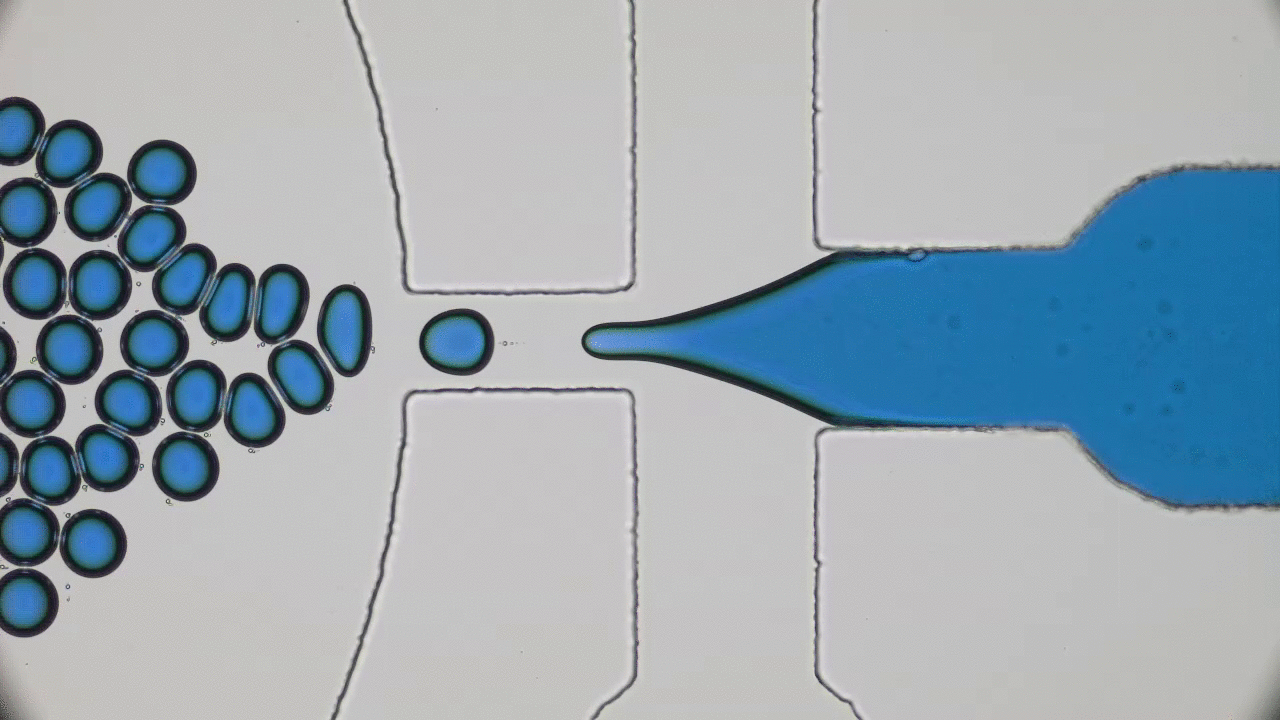Softbites team introduces its official authors. Find here our second post of our series of interviews. You can read Danny’s posts here.
Who are you and what is your research focus?
I am a physics Ph.D. student at Yale University studying theoretical biophysics. I use biology to inspire my search for new ideas in physics and use that new physics to learn new biology. Specifically, I study entropy production in an attempt to understand how biological systems use and dissipate energy.
Can you describe this picture illustrating your research?
I primarily study the cell cytoskeleton, so it is fitting for the image to be from the cover of a recent textbook edited by Thomas D. Pollard (Yale) and Robert D. Goldman (Northwestern) called The Cytoskeleton. The image itself was provided courtesy of Harald Herrmann (University of Heidelberg). It shows a microscopy image of a cell with different components of the cytoskeleton labeled with fluorescent proteins — actin (blue), microtubules (green), and intermediate filaments (red).

Why do you think the science you do is important?
The work I do is very basic research — it doesn’t have an immediate practical impact that I can think of. However, uncovering exactly how cells use energy is an important step not only towards understanding biology, but can also lead to design principles to be used in micron-sized, soft, engineered materials. Also, from a pure physics point of view, we don’t understand out-of-equilibrium systems anywhere near as well as we understand equilibrated systems, and living things are about as far from equilibrium as you can get.
When did you first know you wanted to be a scientist and what were the crucial steps that took you to your current project?
I didn’t know I wanted to be a scientist until halfway through my first year of college. I entered school wanting to study music and business, but a class in acoustics quickly converted me to pure physics. I didn’t know what research was until my fourth year, but once I got a taste I knew I wanted to do more. I started out doing experiments in a soft matter lab studying colloids (micron-sized plastic spheres in water) under the mentorship of another Softbites writer, Christine Middleton (Hi Christine!). I found cells to be more interesting versions of colloids and decided to study biophysics in graduate school.
I was turned on to my current project for both practical and esoteric reasons. My moonshot idea of what I want to do with science is to identify a transition in matter from living to non-living in the same way we understand the transition from water to ice. This highfalutin idea has led me to the realm of understanding cells as information processing units, which requires understanding how they dissipate energy to process information. It turns out that a project in my lab had a very natural extension towards understanding energy dissipation, and I was able to put my interests to practical work in understanding biological experiments.

What are you passionate about outside of science?
My most recent obsession has been the impending water crisis that many cities around the world will soon face (the Vox Netflix show “Explained” has an episode about this that I highly recommend if you want to scare your pants off). I’m also interested in the intersection between science and law (this might be cheating out of the question), and in particular have begun researching how the idea of “universal laws” play a role in science, law, and in the dialogue that the two try to have on the issues mentioned above. I also play guitar and love hip-hop music.
Why did you choose to write for Softbites?
I did my undergraduate degree in the history and philosophy of science, so I spent a lot of my time writing. In grad school, there’s less opportunity for non-scientific writing and I wanted to exercise those muscles again. I care a lot about science communication and believe in the mission of Softbites to educate people on the ubiquitous yet often overlooked science of soft matter (which encompasses biological matter). It’s a fascinating subject I want to help popularize, and I like doing the work that goes into that popularization.


